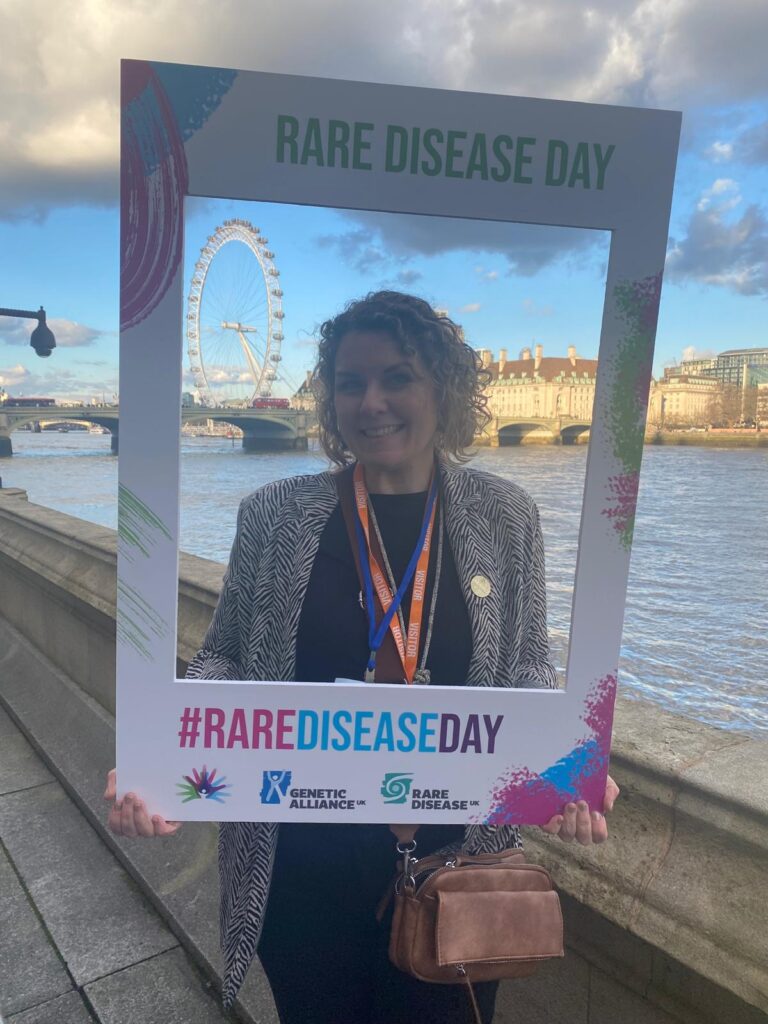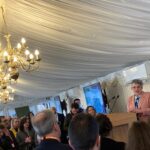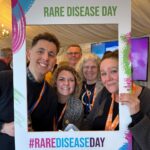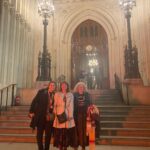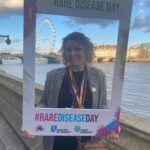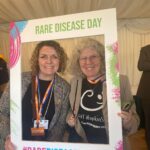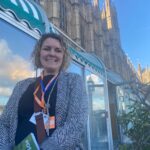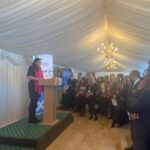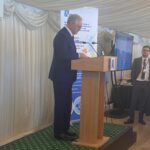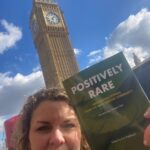February 27th marked a memorable and impactful day at the Westminster Parliament Reception for Rare Disease Day, which was graciously hosted by Genetic Alliance. It was an honour to be part of such a significant event, where individuals from across the rare disease space came together to share stories, raise awareness, and work towards positive change for those living with rare conditions.
The reception was a wonderful opportunity to meet people who are directly involved in rare disease advocacy—politicians, patient advocacy groups, and representatives from charities such as Genetic Alliance. It was inspiring to witness firsthand the dedication and passion of everyone working tirelessly to bring attention to the unique challenges faced by people living with rare conditions. These conversations provided valuable insights into the power of collaboration and the potential for collective action to make real, lasting change.
One of the standout moments of the event was the presentation of Genetic Alliance’s ‘More Than You Can Imagine: An Anthology of Rare Experiences’ campaign. This powerful collection features over 60 submissions that represent more than 50 different rare conditions, showcasing the diverse voices of individuals within the genetic, rare, and undiagnosed communities. Contributors, ranging from ages 9 to 71, come from across the UK and include not only those living with rare conditions but also their families, healthcare professionals, and support organisations.
The anthology touches on themes of resilience, isolation, mental health, and the challenges of “fighting” for care. Yet, it also emphasises the strength found in support and community. While each story is deeply personal, the shared experiences are strikingly evident. Delayed diagnoses, lack of awareness among healthcare professionals, fragmented care, and barriers to treatment and support are challenges that resonate throughout the collection. Through these poignant contributions, the anthology gives voice to the often-unheard stories of the rare disease community and highlights the need for greater awareness and systemic change.
Another key focus of the reception was an update on the government’s 5-year action plan for people living with a rare disease, which is due to end in 2026. The plan is built around four priorities:
- Getting a diagnosis faster
- Increasing awareness of rare diseases among medical professionals
- Better co-ordination of care
- Improved access to specialized treatment and drugs
The government has made significant strides in addressing these priorities, but there is still much work to be done. Progress has been seen in the establishment of rare disease frameworks and networks to improve diagnosis times and better coordinate care. Awareness initiatives are gradually making headway among medical professionals, although there is still a need for further education across the healthcare system. Access to specialised treatments and drugs remains a challenge, with patients often encountering long waits and bureaucratic hurdles. Despite these challenges, the overall direction is positive, and there is growing commitment to improving the lives of those affected by rare diseases.
One of the highlights of the event was the speech delivered by Peter Dowd, Member of Parliament and Chair of the All Party Parliamentary Group on Genetic, Rare, and Undiagnosed Conditions. His words resonated deeply, emphasising the importance of continued advocacy, policy development, and the need for greater support for those affected by rare diseases. His leadership in this space is truly making a difference, and it was a privilege to hear him speak in such an influential setting.
Being surrounded by like-minded individuals, all committed to raising awareness, supporting research, and improving the lives of those affected by rare diseases, was an incredibly uplifting experience. It reaffirmed the importance of collective action and the need for continued dialogue between lawmakers, healthcare providers, and patient organisations such as PTENUKI.
We look forward to seeing what the final year of the Government policy brings and will continue to work hard for all those affected by PTEN and other rare diseases.

